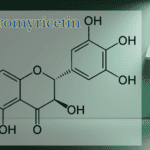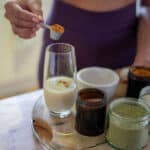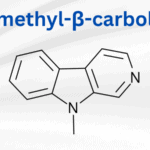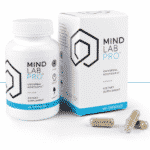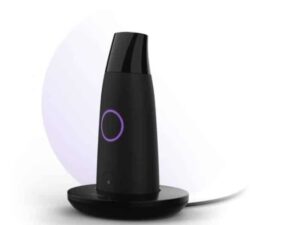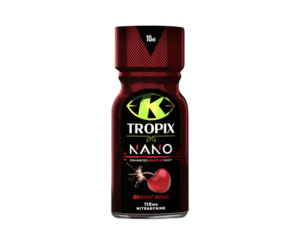Comprehensive Guide to Chaga Mushrooms: Benefits, Uses, Dosing & More
In the vast world of medicinal mushrooms, chaga has emerged as a potent superfood, capturing the attention of health enthusiasts and researchers alike. This unassuming fungus, with its charred appearance and impressive nutritional profile, is making waves for its potential to support immune function, reduce inflammation, and even combat cancer. As part of our mission at Holisticnootropics.com to provide comprehensive, evidence-based resources for cognitive enhancement and overall well-being, let’s dive into the fascinating world of chaga mushrooms.
Biohack Your Brainpower
What is Chaga Mushroom?
Chaga, scientifically known as Inonotus obliquus, is a fungus that grows primarily on birch trees in the colder climates of the Northern Hemisphere. Unlike the typical mushroom with a stem and cap, chaga presents as a dark, irregularly shaped mass on the tree bark. Its exterior has a charred, cracked appearance, while the interior reveals a soft, orange-brown tissue.
Traditionally used in folk medicine throughout Russia, Northern Europe, and Asia, chaga has been consumed as a tea for centuries to promote health and longevity. Today, it has gained global recognition as a functional food and a promising candidate in the realm of nootropics.
Nutritional Profile of Chaga
One of the most remarkable aspects of chaga is its unique nutritional composition. This medicinal mushroom is:
- Rich in antioxidants, particularly melanin, which gives it the distinctive dark color
- High in fiber and essential nutrients like Iron, Vitamin D, Potassium, Magnesium, and Manganese
- One of the most abundant natural sources of oxalates
It’s important to note that the nutrient content of chaga can vary depending on factors such as the geographical location, the age and health of the host tree, and the processing methods used.
Health Benefits of Chaga Mushrooms
The surge in chaga’s popularity can be attributed to its wide array of potential health benefits. While more human studies are needed to confirm its efficacy, preliminary research and traditional use suggest that chaga may support various aspects of health:
Immune System Support
Chaga contains beta-glucans, complex sugars that stimulate the immune system. These compounds interact with immune cells, enhancing their ability to combat pathogens and foreign invaders. Animal studies have demonstrated chaga’s potential to modulate the production of cytokines, the signaling molecules that regulate immune responses1.
Anti-Inflammatory Effects
Inflammation is a natural immune response, but chronic inflammation can contribute to various health issues. Chaga has shown promise in reducing inflammation by suppressing pro-inflammatory cytokines. This anti-inflammatory effect may be beneficial for managing conditions like arthritis and other chronic inflammatory disorders2. Learn More: Reishi Mushroom: Benefits, Dosing & More
Potential Anti-Cancer Properties
Perhaps the most intriguing potential of chaga lies in its possible anti-cancer effects. In vitro studies have shown that chaga extract can inhibit the growth of various cancer cell lines, including those of the lung, breast, and colon2. Animal studies have also demonstrated tumor size reduction in mice treated with chaga. These effects are thought to be mediated by chaga’s antioxidant properties and its ability to stimulate the immune system. However, it’s crucial to note that more human studies are needed to confirm these findings and determine the safety and efficacy of using chaga in cancer treatment.
Blood Sugar Management
Diabetes is a growing health concern worldwide, and managing blood sugar levels is crucial for preventing complications. Animal studies have indicated that chaga may have potential in lowering blood glucose levels and reducing insulin resistance. In mouse models of diabetes, chaga extract improved glucose tolerance and insulin sensitivity1. While these findings are promising, further research is needed to assess chaga’s effectiveness in managing diabetes in humans.
Cholesterol and Heart Health
High cholesterol is a significant risk factor for heart disease, and maintaining healthy cholesterol levels is essential for cardiovascular health. Animal studies have shown that chaga extract can lower LDL (“bad”) cholesterol levels while increasing the antioxidant capacity of the blood1. Some studies have also suggested that chaga may improve HDL (“good”) cholesterol levels. However, more human trials are necessary to establish chaga’s benefits for heart health.
How to Use Chaga Mushrooms
Chaga is versatile and can be consumed in various forms, including:
- Powder: Ground chaga can be added to smoothies, coffee, or baked goods.
- Capsules: Chaga supplements are available in capsule form for convenience.
- Tinctures: Liquid extracts of chaga can be taken directly or added to beverages.
- Tea: Perhaps the most traditional method, chaga chunks can be simmered in water to make a medicinal tea.
When it comes to dosage, there is no universally recommended amount. However, most studies have used doses ranging from 1000-3000mg per day. It’s always best to start with a lower dose and gradually increase based on your individual response and the guidance of a healthcare professional.
Chaga Tea Recipe
Making chaga tea is a simple and effective way to enjoy its benefits. Here’s a basic recipe:
Ingredients:
- 1-2 tbsp chaga mushroom chunks
- 4 cups water
- Optional: honey, cinnamon, lemon
Instructions:
- Break chaga into smaller pieces if needed
- Add chaga and water to a pot, bring to a boil
- Reduce heat and simmer for 15-20 minutes
- Strain out the chaga pieces
- Add honey, cinnamon, lemon to taste
- Enjoy 1-2 cups per day
When purchasing chaga, it’s crucial to choose high-quality, organic products from reputable sources to ensure purity and potency. Learn More: Best Lion’s Mane Mushroom Supplements
Chaga Mushroom Safety and Side Effects
Chaga is generally well-tolerated, with few reported side effects. However, there are some safety considerations to keep in mind:
- Chaga is high in oxalates, which may increase the risk of kidney stones in susceptible individuals.
- It can interact with blood sugar-lowering medications and may cause hypoglycemia if used in combination.
- Chaga contains compounds that may have a mild blood-thinning effect, so caution is advised for those taking anticoagulants or blood thinners.
- There is insufficient safety data for use during pregnancy and lactation, so it’s best to avoid chaga during these times.
As with any new supplement, it’s always wise to consult with a healthcare provider before adding chaga to your routine, especially if you have pre-existing medical conditions or are taking medications.
Where to Buy Chaga Mushrooms
When shopping for chaga supplements, quality should be your top priority. Look for products that are:
- Organic and sustainably sourced
- Tested for purity and contaminants
- Extracted using methods that preserve the beneficial compounds
- Transparent about the origin and processing of the mushrooms
Some reputable brands that offer high-quality chaga supplements include:
| Brand | Form | Extraction Method | Servings Per Container | Price |
|---|---|---|---|---|
| Real Mushrooms | Powder | Hot water extraction | 30 | $34.95 |
| Om Mushrooms | Capsules | Alcohol extraction | 90 | $28.99 |
| Four Sigmatic | Instant Tea Mix | Dual extraction | 10 | $19.99 |
| FreshCap | Chunks | Steam extraction | Varies | $39.95/lb |
Chaga Mushrooms Discussions on Reddit
Does Chaga Work?
I’ve heard a considerable amount about the antioxidant concentration in Chaga, basically insanely high amounts. I recently purchased a chaga tincture and started (sporadically) taking doses. Thus far I’ve just noticed that I’m a bit more energetic on the days I remember to take it.
u/mushroomsaremything in discussion ‘Chaga mushrooms do they work?’
Many Redditors report positive experiences with chaga, noticing increased energy and overall sense of well-being. However, some express skepticism and emphasize the need for more human clinical trials to substantiate health claims.
Harvesting and Processing Chaga
That’s a nice sized chunk of chaga! I’ve prepared it in two different ways before. I’ve chunked it up with an axe into small 1/2 bits before which I’ve used as is and then I have taken those chunks and put them through a meat grinder to get a course powder which I mix with coffee and have a 50/50mix of chaga and coffee.
u/Hinter-Lander in discussion ‘Chaga Processing’
Proper harvesting and processing techniques are important topics among chaga enthusiasts. Most people recommend breaking the chaga into smaller chunks and grinding into a coarse powder for use in teas and coffee. There are different schools of thought on the best extraction methods – hot water, alcohol, or dual extraction.
Chaga Mushroom Identification
I would need to see the insides to be fully convinced that that is a chaga. The color variations on the surface suggest lichen growth and that doesn’t happen on chaga.



